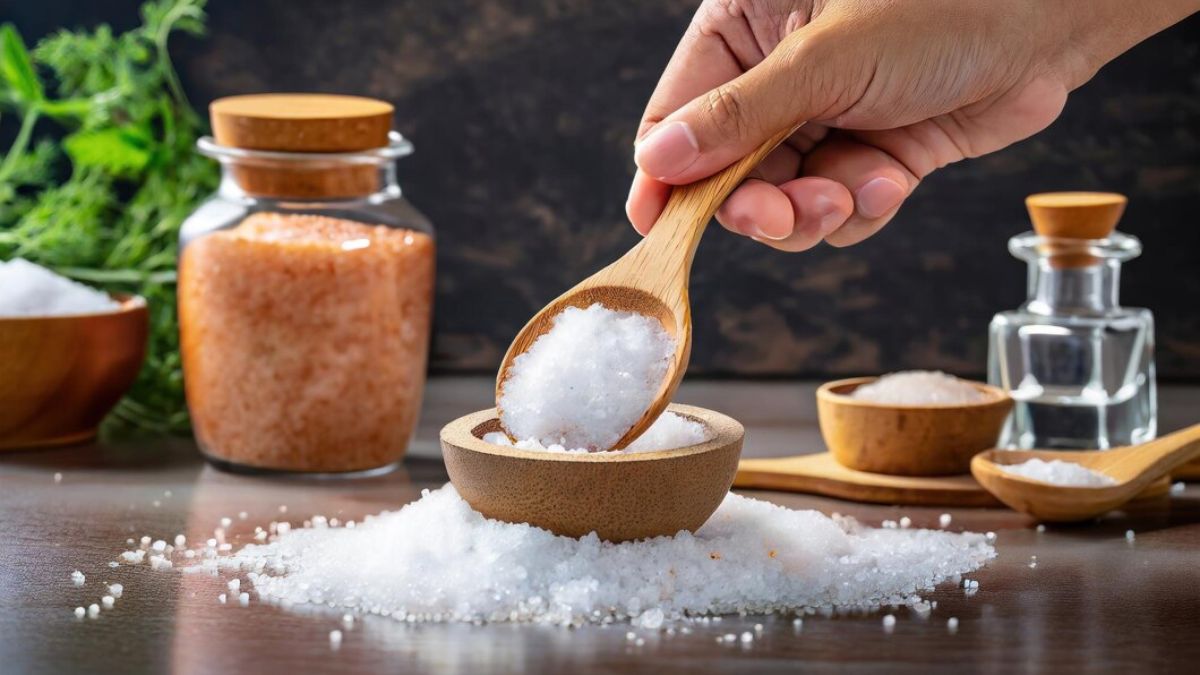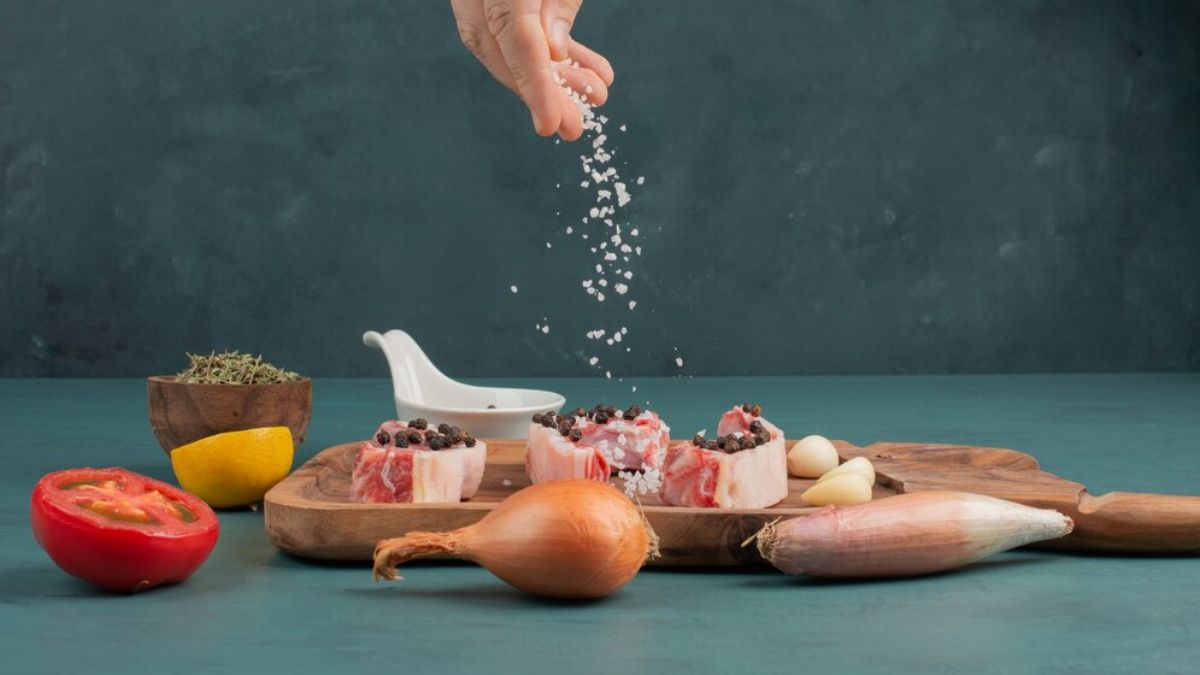
Salt plays a vital role in regulating various bodily functions. However, consuming excessive amounts of sodium can lead to several health complications.
The Harvard TH Chan School of Public Health stated that excessive salt in your diet can increase your risk of high blood pressure, heart disease, stroke, and calcium loss from bones. Excess salt also increases the risk of skin inflammation. Here's the link between high salt intake and skin inflammation and how you can mitigate its impact.
Table of Content:-
How Does Salt Cause Skin Inflammation?
While the exact mechanisms are still being studied, a German study suggests that high sodium intake can worsen inflammatory skin conditions like eczema. Their research suggests that excess salt disrupts the skin's natural barrier function, making it more susceptible to irritation and inflammation.
Additionally, high salt intake may trigger inflammatory pathways within the body, manifesting on the skin.

How to Reduce the Impact of High Salt Intake on Skin Health
If you struggle with skin inflammation or are concerned about its potential, consider these tips to manage your salt intake and promote healthy skin:
Be mindful of hidden sources of sodium
Processed foods, restaurant meals, and cured meats are often loaded with sodium. Reading food labels carefully and opting for low-sodium alternatives can significantly reduce your intake. Here are some common foods that are high in sodium:
- Processed meats: Lunch meats, hot dogs, bacon, sausage, and ham.
- Canned vegetables: Canned vegetables can be a convenient way to add veggies to your diet, but they often contain added sodium.
- Cheeses: Cheeses like feta, parmesan, and mozzarella are particularly high in sodium.
- Salty snacks: Potato chips, pretzels, popcorn, and other salty snacks.
- Condiments: Soy sauce, ketchup, mustard, and salad dressings.
- Instant soups and noodles: These convenient foods are often loaded with sodium.
- Bakery items: Bread, bagels, muffins, and other bakery items can be surprisingly high in sodium.
Embrace fresh ingredients
Base your meals on fresh fruits, vegetables, and whole grains, which are naturally low in sodium.
Herbs and spices to the rescue
Experiment with various herbs and spices to add flavour to your meals without relying on salt.
Drink plenty of water
Staying hydrated helps flush out excess sodium from your body and promotes overall skin health.
Also Read: 5 Anti-Inflammatory Herbs That Can Help Treat Skin Inflammation

Additional Tips for Healthy Skin
In addition to these tips to cut sodium from your diet, these methods can help boost your skin health further:
Maintain a well-balanced diet
Ensure your diet provides adequate essential nutrients for optimal skin health. Consume plenty of fruits, vegetables, and healthy fats.
- Manage stress: Chronic stress can exacerbate skin inflammation. Practice relaxation techniques like yoga or meditation to manage stress effectively.
- Don't neglect sleep: Adequate sleep is crucial for skin repair and regeneration. Aim for 7-8 hours of quality sleep each night.
Moisturise regularly
A good moisturiser helps hydrate and protect your skin barrier, reducing irritation and inflammation.
Consult a dermatologist
If you have concerns about chronic skin inflammation, consult a dermatologist for personalised guidance and treatment options.
Also Read: From Headaches To Kidney Damage, Expert Lists 6 Adverse Effects Of Consuming Too Much Salt
By following these tips, you can effectively manage your salt intake and promote healthy, resilient skin. Remember, consistency is key. By making small, sustainable changes to your diet and lifestyle, you can significantly reduce your risk of skin inflammation and achieve a healthy, radiant complexion.
Also watch this video
How we keep this article up to date:
We work with experts and keep a close eye on the latest in health and wellness. Whenever there is a new research or helpful information, we update our articles with accurate and useful advice.
Current Version
